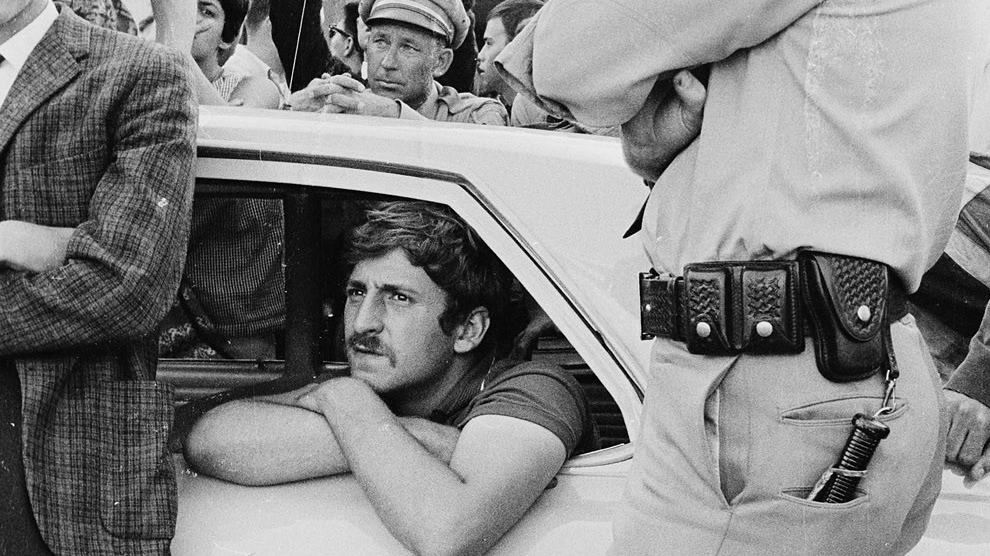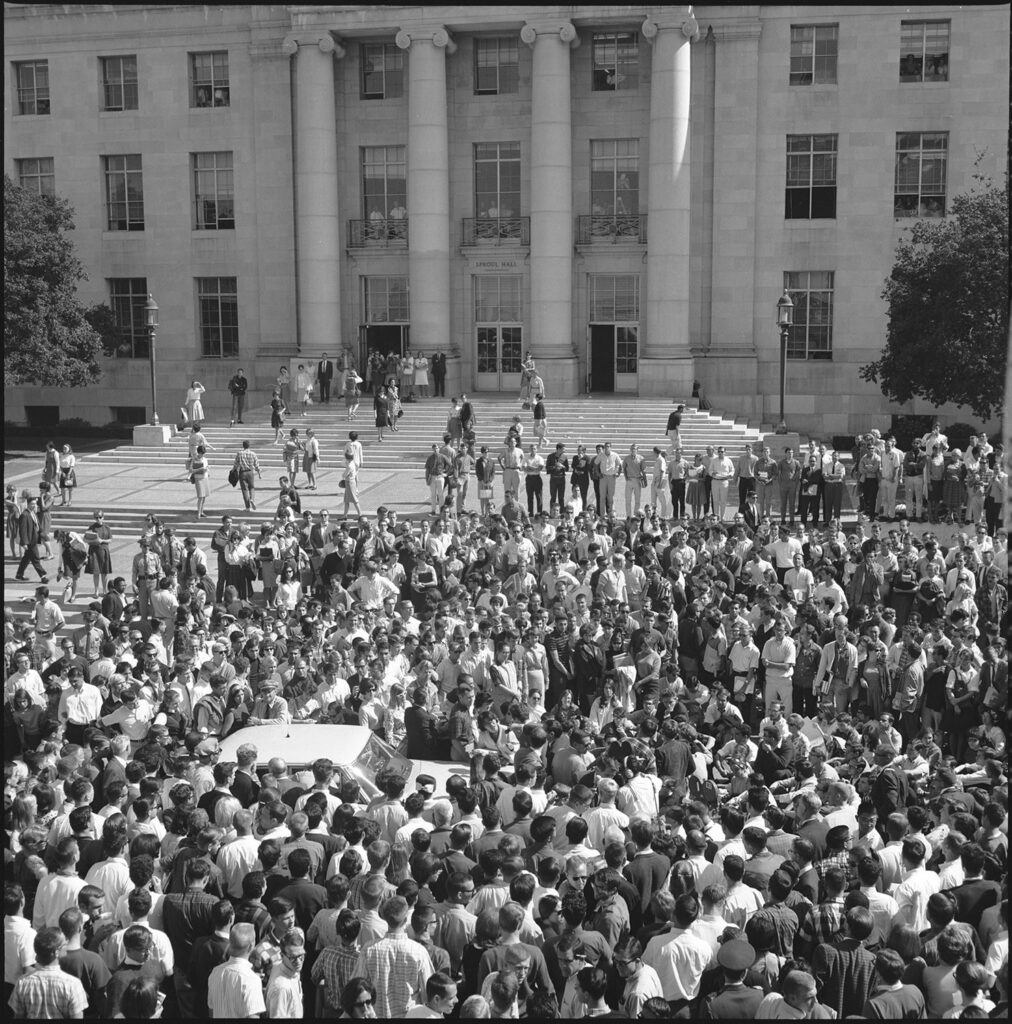How Freedom Summer activists brought the Free Speech Movement to Berkeley
During the summer of 1964, students from UC Berkeley joined activists in the South to draw attention to the racist oppression that prevented Black Americans from voting. Back on campus, they continued the fight.

Steven Marcus/Free Speech Movement Photographs, BANC PIC 2000.002, Courtesy of The Bancroft Library, University of California, Berkeley
October 1, 2024
In the fall of 1964, a 21-year-old UC Berkeley student named Mario Savio returned to campus to resume his studies in philosophy. But that year was going to be different. Over the summer, he’d been in Mississippi, where he was part of Freedom Summer, a landmark moment in the Civil Rights Movement when activists traveled to the South to direct national attention to the racist oppression that prevented Black Americans from voting. He was inspired to keep fighting for equality and freedom.
Back at Berkeley, Savio witnessed the administration punishing students for speaking out about political issues the campus deemed unacceptable, including civil rights and anti-Vietnam war advocacy.

Michael Rossman/Free Speech Movement Photographs, BANC PIC 2000.067:36, Courtesy of The Bancroft Library, University of California, Berkeley
After student Jack Weinberg, who’d also just returned from Freedom Summer, was arrested for tabling on Sproul Plaza to raise money for civil rights work, students protested with a spontaneous 32-hour sit-in around the police car detaining him. Standing on top of the car, Savio gave a speech to the crowd about the fundamental right to speech. Soon after, Savio spearheaded the Free Speech Movement at Berkeley.
Leon Litwack, a Berkeley professor of history who died in 2021, witnessed firsthand this shift in student activism. His interview with Berkeley’s Oral History Center in 2001 and 2002 is one of dozens documenting the history of student activism at Berkeley.
“At places like Berkeley and other places around the country,” said Litwack, “significant numbers of young people came to believe that direct personal commitment to social justice was a moral imperative, and that social inequities are neither inevitable nor accidental but reflect the assumptions and beliefs and decisions of people who command enormous power, including the university administrators. Well, these were important perceptions. So what began at Berkeley as a protest to obtain a very traditional liberal freedom, freedom of speech and advocacy, soon brought into question the official version of reality.”
Learn more about Freedom Summer and its legacy at Berkeley on the Oral History Center’s website.
To read more about the history of student activism at Berkeley, see the Oral History Center’s projects on the Free Speech Movement and SLATE, a campus political organization from 1958 to 1966. There, full transcripts of dozens of oral histories are available.
Also, read more about SLATE and its impact on Berkeley student life.